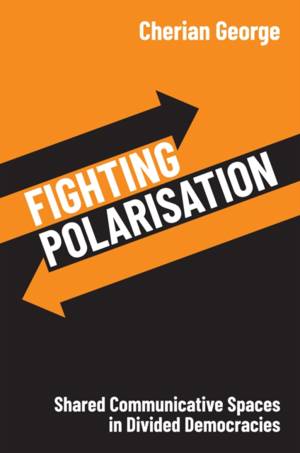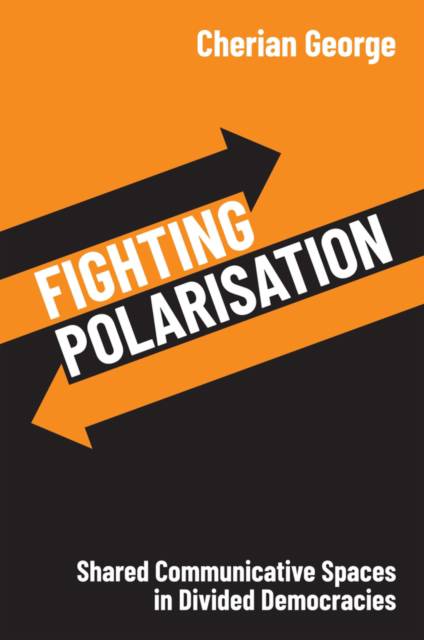
- Afhalen na 1 uur in een winkel met voorraad
- Gratis thuislevering in België vanaf € 30
- Ruim aanbod met 7 miljoen producten
- Afhalen na 1 uur in een winkel met voorraad
- Gratis thuislevering in België vanaf € 30
- Ruim aanbod met 7 miljoen producten
Zoeken
Fighting Polarisation
Shared Communicative Spaces in Divided Democracies
Cherian George
Hardcover | Engels
€ 121,45
+ 242 punten
Uitvoering
Omschrijving
Polarisation is deeply entrenched in many societies, with antagonistic us/them divides eroding faith in democracy's power to deal with diversity. But, around the world, there are groups of citizens who refuse to concede that this is the end of the story. Challenging received prejudices and resisting tribal appeals, they practise dialogue and deliberation across difference, gradually widening whom they mean by "us".
Cherian George highlights the efforts taking place around the world against polarisation: On an American campus inflamed by war in the Middle East, a small group of pro-Palestinian and Zionist students meet over dinner to try to understand one another. In Indonesia, women join hands against rising religious intolerance in their home towns. In New Zealand, indigenous Maaori and the descendants of settlers serve as joint custodians of the country's longest river. This is a transnational tour of a disparate movement to build more inclusive democracies. Like the change agents it spotlights, this book has no illusions about their odds of success. But lessons from the successes and failures map out what may be democracies' best chance against the powerful forces of division and hate.
Fighting Polarisation is enlightening reading for undergraduate and graduate students of media and communication studies, comparative politics, political sociology, human rights, and conflict studies, as well as general readers concerned about the future of democracy.
Cherian George highlights the efforts taking place around the world against polarisation: On an American campus inflamed by war in the Middle East, a small group of pro-Palestinian and Zionist students meet over dinner to try to understand one another. In Indonesia, women join hands against rising religious intolerance in their home towns. In New Zealand, indigenous Maaori and the descendants of settlers serve as joint custodians of the country's longest river. This is a transnational tour of a disparate movement to build more inclusive democracies. Like the change agents it spotlights, this book has no illusions about their odds of success. But lessons from the successes and failures map out what may be democracies' best chance against the powerful forces of division and hate.
Fighting Polarisation is enlightening reading for undergraduate and graduate students of media and communication studies, comparative politics, political sociology, human rights, and conflict studies, as well as general readers concerned about the future of democracy.
Specificaties
Betrokkenen
- Auteur(s):
- Uitgeverij:
Inhoud
- Aantal bladzijden:
- 220
- Taal:
- Engels
Eigenschappen
- Productcode (EAN):
- 9781509564552
- Verschijningsdatum:
- 22/12/2025
- Uitvoering:
- Hardcover
- Formaat:
- Genaaid
- Afmetingen:
- 154 mm x 232 mm
- Gewicht:
- 589 g

Alleen bij Standaard Boekhandel
+ 242 punten op je klantenkaart van Standaard Boekhandel
Beoordelingen
We publiceren alleen reviews die voldoen aan de voorwaarden voor reviews. Bekijk onze voorwaarden voor reviews.








